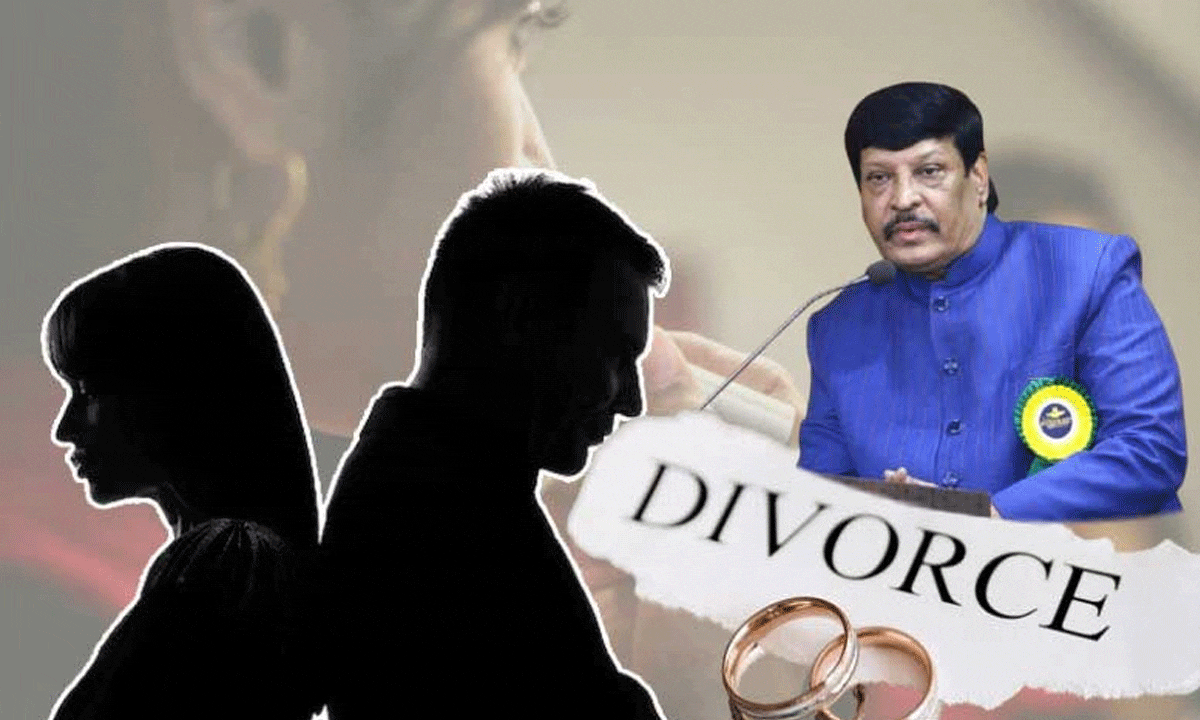Telangana High Court Rules Muslim Women Can Seek Khula Without Husband’s Consent
The court emphasized khula as a non-confrontational form of divorce, ideally resolved privately after failed reconciliation attempts. A woman's right to exit the marriage contract stands firm under both constitutional and religious principles.

Whenever there is talk of separation between a couple, the Divine Throne trembles. If a woman seeks Khula (Islamic divorce initiated by the wife) without any valid reason, then to prevent such situations, the husband’s consent becomes necessary. At the same time, it is equally important to impose restrictions on those who oppress women. If a woman wishes to part ways with her husband based on solid grounds and is permitted to do so with dignity, then indeed, Allah (SWT) becomes immensely pleased.
In one such matter, a decision was issued by the Telangana High Court concerning a Khula request. The court delivered a significant judgment stating that a Muslim husband does not have the right to reject his wife’s Khula request.
Khula is the Islamic legal right of a woman to terminate the marriage contract, typically by returning the dower (mahr) to the husband and settling the matter privately. This decision was given by a two-member bench comprising Justice Moushumi Bhattacharya and Justice B.R. Madhusudhan Rao. The case was filed by a man who had challenged a Family Court ruling that had dismissed his petition seeking to invalidate a Khula document.
The bench’s decision, rooted in relevant Quranic verses, Hadiths, and prior judicial precedents, clarifies the rights and procedures related to Khula initiated by a Muslim wife. The matter pertains to a Khula document issued in October 2020, signed by a Mufti (Islamic scholar), a professor of Islamic Studies, an Arabic language expert, and an Imam of a mosque. The couple had been married since 2012, but after alleged violence by the husband in 2017, which led to the woman being hospitalized, the wife sought separation.
The husband did not attend reconciliation meetings and later approached the Family Court in 2020 to challenge the Mufti’s authority to issue a Khula document. In its recent ruling, the Telangana High Court clarified several important points:
- A wife’s request for Khula has immediate effect, and the husband has no absolute right to obstruct it.
- The Family Courts do not require long hearings in such cases; rather, a brief and swift process is sufficient.
- Even if the wife does not return the dower, the husband still cannot stop the Khula.
- The court clarified that Khula is a non-contentious form of divorce that is resolved privately once both parties fail to reconcile.
The bench emphasized that obtaining a Khula document from a Mufti or Darul Qaza is not mandatory, and such documents are only advisory in nature, having no legal enforceability in court. Furthermore, the court stated that a wife does not need to provide a reason or seek her husband’s consent for requesting Khula.
The court’s role is solely to legally acknowledge the termination of marriage, thereby making it binding for both parties. The judgment stated that if the wife requests Khula and the matter is resolved privately between the parties, then her request takes immediate effect and can serve as a legal basis for separation.
The Family Courts have been directed to assess the legal standing of Khula by simply confirming whether the wife attempted reconciliation and offered to return the mahr. After this, the court should give its decision without prolonged evidence or hearings.
Advocate Mubashir Hussain Ansari, who represented the wife in this case, expressed satisfaction over the verdict, stating that the decision is based on the teachings of the Quran, authentic Hadith, and established Supreme Court principles, and that it provides a systematic and fair process for Khula.
Ansari added that the simplified and expedited procedure recommended by the High Court for Family Courts will help resolve thousands of pending Khula cases quickly and effectively. According to him, the judgment will aid in eliminating unnecessary delays, complicated legal procedures, and excessive paperwork.
However, despite its legal clarity, this judgment is not acceptable from a Shariah perspective, as it deviates from Islamic rulings. There is a need for all Muslims to unite on this issue and adopt a clear stance, urging the government to implement such complex decisions in an Islamically acceptable manner. There is a fear that after obtaining Khula through this method, if a woman remarries, scholars and Muftis may later declare that marriage invalid.
One should avoid conversing with a person who cannot tolerate hearing the truth, because such a person will twist your words, ignore their own faults, and blame you for everything. When a man divorces, the stigma is placed on the woman’s forehead—whether she is at fault or not. No one questions the man, “Why did you divorce your wife?” But the woman is made to feel at every step that she was unworthy of being a wife.
In short, marriage in Islam is a contract to live together. If either party violates this agreement, then a rupture in the relationship is inevitable. So let us pledge not to bring our household matters into the courtroom and not to turn our lives into unnecessary tragedy. If conflict intensifies, then perhaps the best conclusion is:
“Let us become strangers once again.”
“Let Us Become Strangers Once Again”
By Dr. Shujaat Ali Sufi, IAS, PhD
Cell: 9705170786
